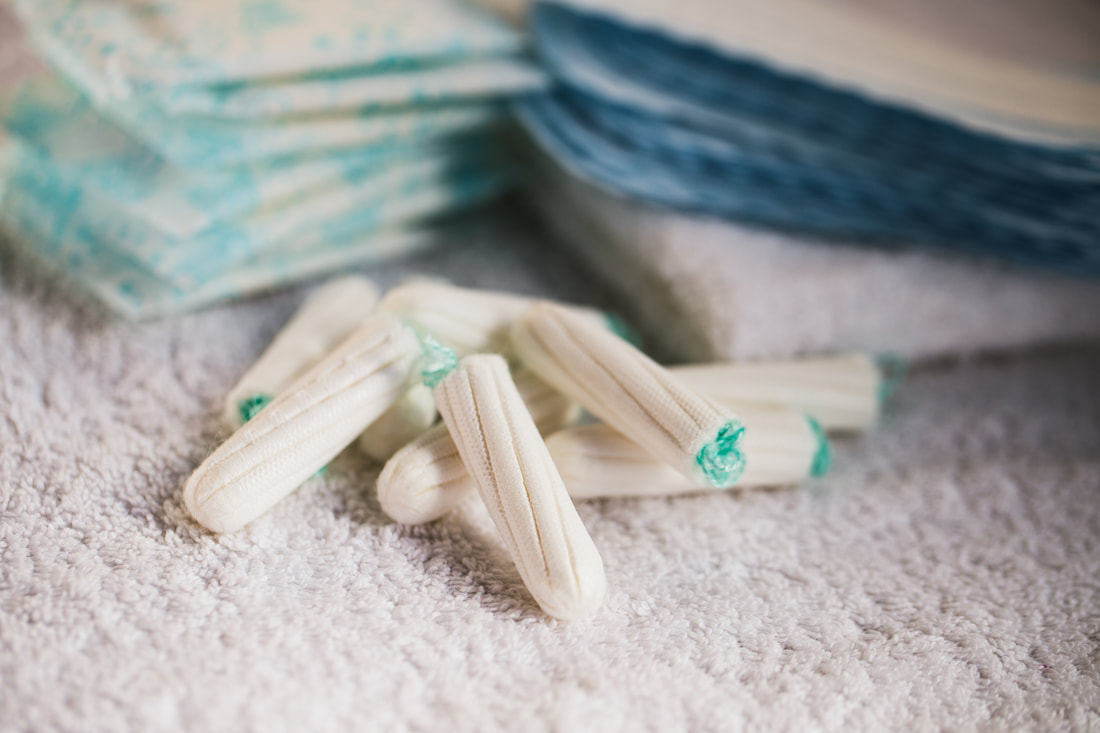|
The last couple of years has seen a growing public interest in period poverty, revealing particular gendered patterns of poverty. A 2018 poll suggested that nearly 20% of girls and women in Scotland are unable to afford period products such as pads and tampons[1]. Much of this attention has been on girls and women who are in the education system or who are using foodbanks. Also in 2018, the Scottish Government launched a scheme to ensure all schools, colleges and universities provide free period products for those who require them[2]. Similar efforts are in place to help homeless women access the period products they require[3]. These are significant steps toward making Scotland a global leader in challenging period poverty. However, a focus on education or on those who are not in employment or who are using foodbanks neglects the experiences of women, trans and non-binary people in employment who may also experience period poverty.
Our research conducted between 2017 to 2019 has revealed that many women, trans and non-binary people struggle to manage their period while they are at work. This can be worse for those living with conditions such as endometriosis which can cause heavy menstrual bleeding and considerable pain. Our data suggests that women may be absent from work due to severe menstrual symptoms, but are unlikely to report the true reason for their absence due to embarrassment. In the summer of 2018 Danielle Rowley, the then MP for Midlothian shared her experiences of the costs of menstruation[4]. Her story of stained trousers attracted considerable media attention and highlighted that broader costs of menstruation, particularly heavy periods. Our research also suggests that some people, even in highly skilled careers such as education, are unable to afford not only menstrual products, but also over the counter medications, clothing and other required items. Women, trans and non-binary participants in the research shared distressing accounts of attempting to manage their periods and gynaecological health conditions when unable to afford appropriate products. While the focus on period poverty remains on those accessing education and those experiencing extreme hardship, we are missing the realities of those who are stuck in cycles of precarious work and low pay. A radical approach is needed and universal access to menstrual products would ensure that no one missed school, work or social activities because they can’t access towels, tampons or cups. A universal approach would prevent anyone from falling through the cracks of policies which target specific groups. Period poverty can be experienced by anyone and is a workplace issue. When we go to work we don’t expect to bring our own toilet paper or handwash with us! It’s time for period products to be recognised as the essential item that they are and to be accessible to all. [1] https://www.theguardian.com/society/2018/feb/05/period-poverty-scotland-poll-shows-women-go-to-desperate-lengths [2] https://www.bbc.co.uk/news/uk-scotland-45295743 [3] https://www.scotsman.com/regions/glasgow-strathclyde/glasgow-s-homeless-women-to-be-given-free-sanitary-towels-1-4540168 [4] https://www.glamourmagazine.co.uk/article/danielle-rowley-interview
27 Comments
9/5/2022 06:53:20 am
Really informative article, I had the opportunity to learn a lot, thank you. https://freecodezilla.net/smart-school-management-system-nulled/
Reply
9/11/2022 03:31:29 pm
Really informative article, I had the opportunity to learn a lot, thank you. https://kurma.website/
Reply
9/12/2022 12:14:28 am
Really informative article, I had the opportunity to learn a lot, thank you. https://odemebozdurma.com/
Reply
9/30/2022 02:16:05 am
It's great to have this type of content. Good luck with your spirit. Thank you. https://bit.ly/site-kurma
Reply
10/4/2022 05:45:41 pm
I think this post is useful for people. It has been very useful for me. Looking forward to the next one, thank you. https://escortnova.com/escort-ilanlari/antalya-escort/finike-escort/
Reply
10/5/2022 10:00:06 am
It was a post that I found very successful. Good luck to you. https://escortnova.com/escort-ilanlari/sanliurfa-escort/akcakale-escort/
Reply
10/5/2022 10:55:33 pm
I follow your posts closely. I can find it thanks to your reliable share. Thank you. https://escortnova.com/escort-ilanlari/ankara-escort/ayas-escort/
Reply
10/6/2022 05:51:30 am
I support your continuation of your posts. I will be happy as new posts come. Thank you. https://escortnova.com/escort-ilanlari/rize-escort/iyidere-escort/
Reply
10/7/2022 03:22:55 am
I think the content is at a successful level. It adds enough information. Thank you. https://escortnova.com/escort-ilanlari/sivas-escort/golova-escort/
Reply
10/7/2022 01:19:17 pm
Thank you for your sharing. I must say that I am successful in your content. https://escortnova.com/escort-ilanlari/sirnak-escort/
Reply
10/8/2022 12:37:24 pm
Thoughtful and real content is shared. Thank you for these shares. https://escortnova.com/escort-ilanlari/aksaray-escort/sultanhani-escort/
Reply
11/23/2022 11:13:57 pm
Sitemizi ziyaret et ve evden is imkanina bak: https://sites.google.com/view/evden-ek-is/
Reply
12/11/2022 03:25:38 pm
Uygun fiyatlardan takipçi satın al: https://takipcialdim.com/
Reply
12/17/2022 09:15:10 am
takipci satın almak için tıkla: https://takipcim.com.tr/
Reply
12/19/2022 10:25:16 pm
İnstagram takipçi satın almak istiyorsan tıkla.
Reply
1/5/2023 05:38:28 am
100 tl deneme bonusu veren siteleri öğrenmek istiyorsan tıkla.
Reply
8/22/2023 03:29:41 pm
https://bit.ly/sultanbeyli-cilingir teşekkürler
Reply
Leave a Reply. |
AuthorWrite something about yourself. No need to be fancy, just an overview. Archives
February 2024
Categories |

 RSS Feed
RSS Feed